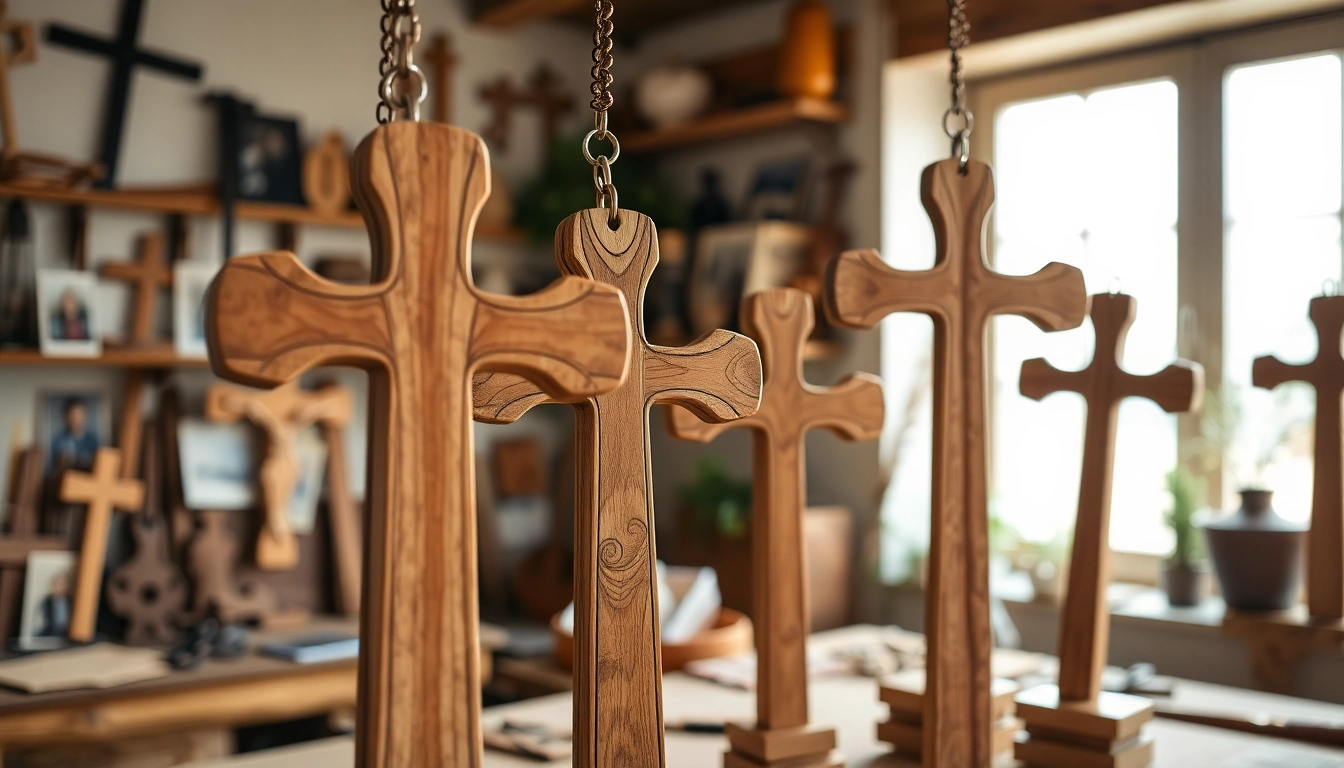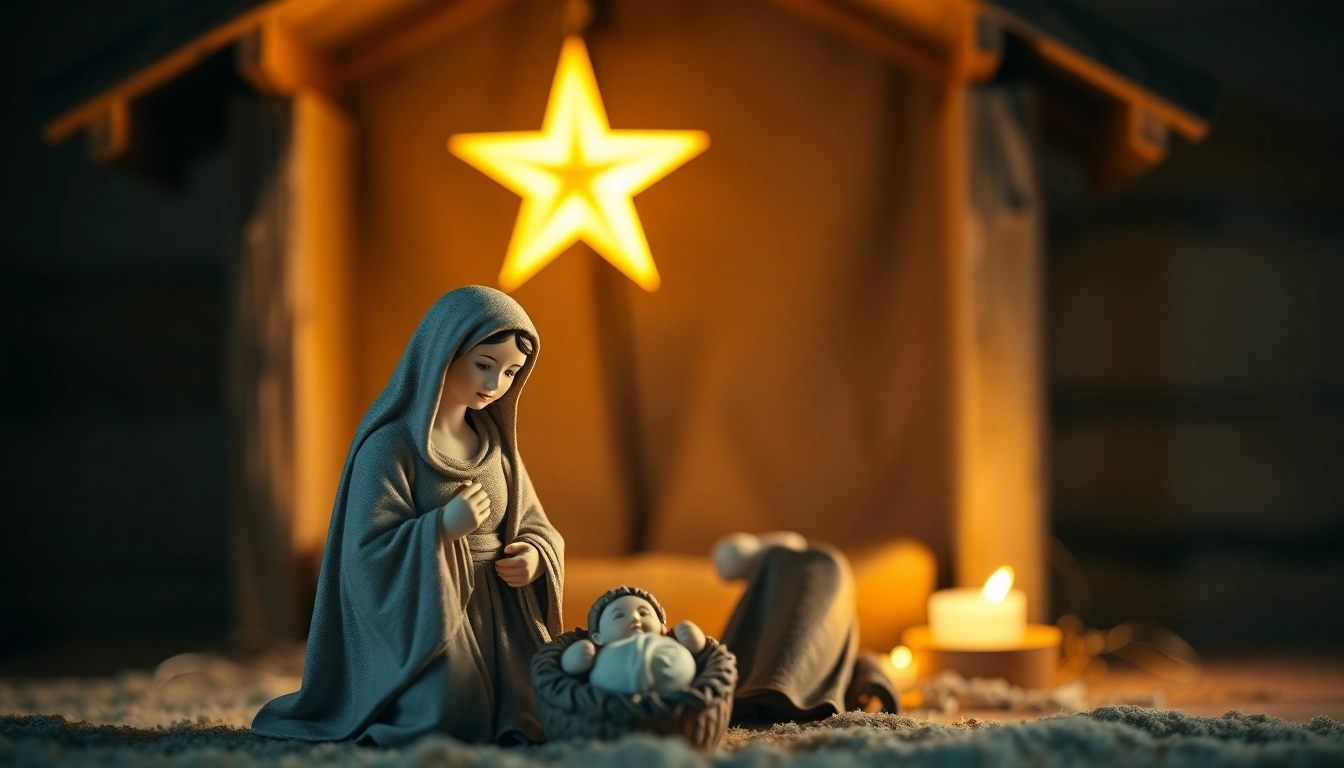
Understanding Handmade Crosses
Handmade crosses have gained immense popularity as both religious symbols and decorative pieces. Crafted with care and intention, these objects often reflect the rich history and various cultural significances attributed to the cross. In this exploration, we will delve into the definition, types, materials, and more surrounding Handmade crosses, shedding light on what makes them unique and valuable.
What Are Handmade Crosses?
Handmade crosses are religious artifacts that are crafted manually, often emphasizing the artisan’s skills and creativity. Unlike mass-produced items, each handmade cross carries its own individual story and character, often reflecting personal beliefs or the cultural heritage of its creator. These crosses stand not merely as symbols of faith, but also as embodiments of craftsmanship, artistry, and spirituality.
Types of Handmade Crosses
When it comes to handmade crosses, there are several variations that cater to different tastes and purposes:
- Wall Crosses: Designed to be displayed on walls, these crosses can come in various sizes and styles, enriching home decor.
- Standing Crosses: These crosses are typically free-standing and can be placed on tables or shelves, providing a visible reminder of faith in living spaces.
- Pendant Crosses: Smaller in size, pendant crosses are often worn as jewelry but hold close spiritual significance for the wearer.
- Decorative Crosses: These cross designs may integrate various forms of art, including painting, carving, and embellishment, serving purely as aesthetic pieces.
Materials Used in Handmade Crosses
The choice of materials is crucial in the crafting of handmade crosses, often determining their look and feel. Common materials include:
- Wood: Often sourced from trees like olive or pine, wooden crosses are popular for their warmth and natural beauty.
- Metal: Crafted from various metals such as brass, silver, or iron, these crosses can present a more industrial or modern aesthetics.
- Stone: Some handmade crosses are carved from stones like marble, granite, or soapstone, giving them a unique heft and presence.
- Glass: Stained glass crosses, popular in many religious settings, combine artistry with material to produce colorful reflections of light.
The Crafting Process of Handmade Crosses
The creation of handmade crosses is an intricate process that entails skill, precision, and an understanding of both materials and techniques. It involves various steps that contribute to the final product’s uniqueness and quality.
Tools and Techniques for Crafting
Artisans utilize a range of tools depending on the material they’re working with. Common tools include:
- Chisels and gouges for carving wood
- Files and sandpaper for smoothing surfaces
- Drills for adding holes for hanging or detailing
- Engraving tools for intricate designs and patterns
Techniques vary from hand-carving and sculpting to painting and inlaying materials for decorative effects, each showcasing the artisan’s skill and vision.
The Importance of Hand-Carving
Hand-carving is at the essence of crafting handmade crosses, as it allows artisans to inject their stories, experiences, and emotions into each piece. Unlike machine-produced products, hand-carved items have imperfections that add character and authenticity. Each carve reflects the skilled hand of the creator, making every piece one-of-a-kind.
Steps to Create a Handmade Cross
- Design Concept: The artisan begins by conceptualizing the design, which could be a traditional style or an original piece.
- Material Selection: Choosing the right material based on the design and desired finish is key.
- Sketching: Creating a rough sketch helps in visualizing the final product.
- Carving and Assembling: Using tools to carve and piece the elements together according to the design.
- Finishing Touches: Adding any final details, such as paint, varnish, or embellishments.
- Quality Check: Ensuring that the final product meets the artisan’s standards of craftsmanship.
Choosing the Right Handmade Cross
Choosing a handmade cross involves thoughtful consideration of personal preferences, space, and significance. Here are factors to reflect upon:
Factors to Consider When Selecting
When selecting the right handmade cross, consider the following:
- Purpose: Determine if it will serve as a decorative piece, a gift, or a personal symbol of faith.
- Size: Assess where it will be displayed, as this will guide the appropriate dimensions.
- Style: Choose a style that resonates with your aesthetic and spiritual beliefs—be it ornate, minimalistic, traditional, or contemporary.
- Material: Consider the durability and appearance of different materials, along with any symbolic meanings they may hold for you.
How to Incorporate Handmade Crosses in Decor
Handmade crosses can seamlessly integrate into various decor styles, adding both beauty and spirituality. Here are a few suggestions:
- Wall Art: Create an impactful focal point by displaying large wall crosses in entryways or living rooms.
- Shelf Displays: Use smaller standing crosses on bookshelves or mantels for subtle reminders of faith.
- Gallery Wall: Combine multiple crosses of varying styles and sizes for an eclectic gallery wall.
- Seasonal Decor: Incorporate crosses in seasonal displays, like at Easter or Christmas, to enhance their significance during the holidays.
Personalizing Your Handmade Cross
Many artisans offer personalization services to make your handmade cross even more special. This could include:
- Engraving a name, date, or phrase that holds meaning.
- Choosing specific colors or designs that resonate with personal stories or family heritage.
- Incorporating elements like birthstones or symbols that reflect personal beliefs.
Such personalization can transform a decorative object into a cherished heirloom, providing deeper emotional value.
Benefits of Supporting Handmade Crosses
Choosing to purchase handmade crosses extends beyond mere decoration. When you support artisans, you contribute to various important aspects of the community and environment.
Impact on Local Artisans
Purchasing handmade crosses helps sustain local craftspeople and their traditions. It supports livelihoods, promotes cultural diversity, and keeps traditional craftsmanship alive. As more consumers seek unique, quality products, local artisans can continue to thrive, passing down their skills to future generations.
Ecosustainable Practices in Crafting
Many artisans employ sustainable methods and materials in their crafting practices. This can include:
- Using reclaimed wood or sustainable timber sources, minimizing impact on forests.
- Choosing eco-friendly finishes that reduce air pollution and toxins.
By supporting handmade goods, consumers can align their purchases with their values, promoting a healthier planet.
Spiritual Significance of Handmade Crosses
Handmade crosses are deeply embedded in spiritual practices. They are often used in rituals, prayer, and as constant reminders of one’s faith journey. These objects can offer comfort, inspire hope, and serve as a tangible connection to spiritual beliefs. Each handmade cross can encapsulate personal stories and shared histories, fostering community through shared faith experiences.
Where to Purchase Handmade Crosses
Finding the right place to purchase handmade crosses can enhance the overall experience, ensuring that you receive a piece of quality craftsmanship. Here are a few avenues to explore:
Online Marketplaces and Artisan Shops
Many artisans have established an online presence, offering their goods through websites and social media platforms. Beyond online shopping, local artisan fairs and craft markets are excellent places to find unique handmade crosses.
Best Practices for Buying Handmade Crosses
When purchasing handmade crosses, consider the following best practices:
- Research: Understand the artisan’s background and their crafting process.
- Quality Check: Look for signs of craftsmanship such as even surfaces, smooth finishes, and attention to detail.
- Read Reviews: Feedback from previous buyers can provide insights into the quality and satisfaction.
Evaluating Quality in Handmade Crosses
Quality in handmade crosses can often be assessed by examining several factors:
- Material Quality: Ensure that the materials used are of high quality and durable.
- Craftsmanship: Look for skilled techniques in carving or assembly, with an emphasis on detail.
- Design Integrity: The overall design should feel cohesive and purposeful, reflecting an understanding of aesthetics.





